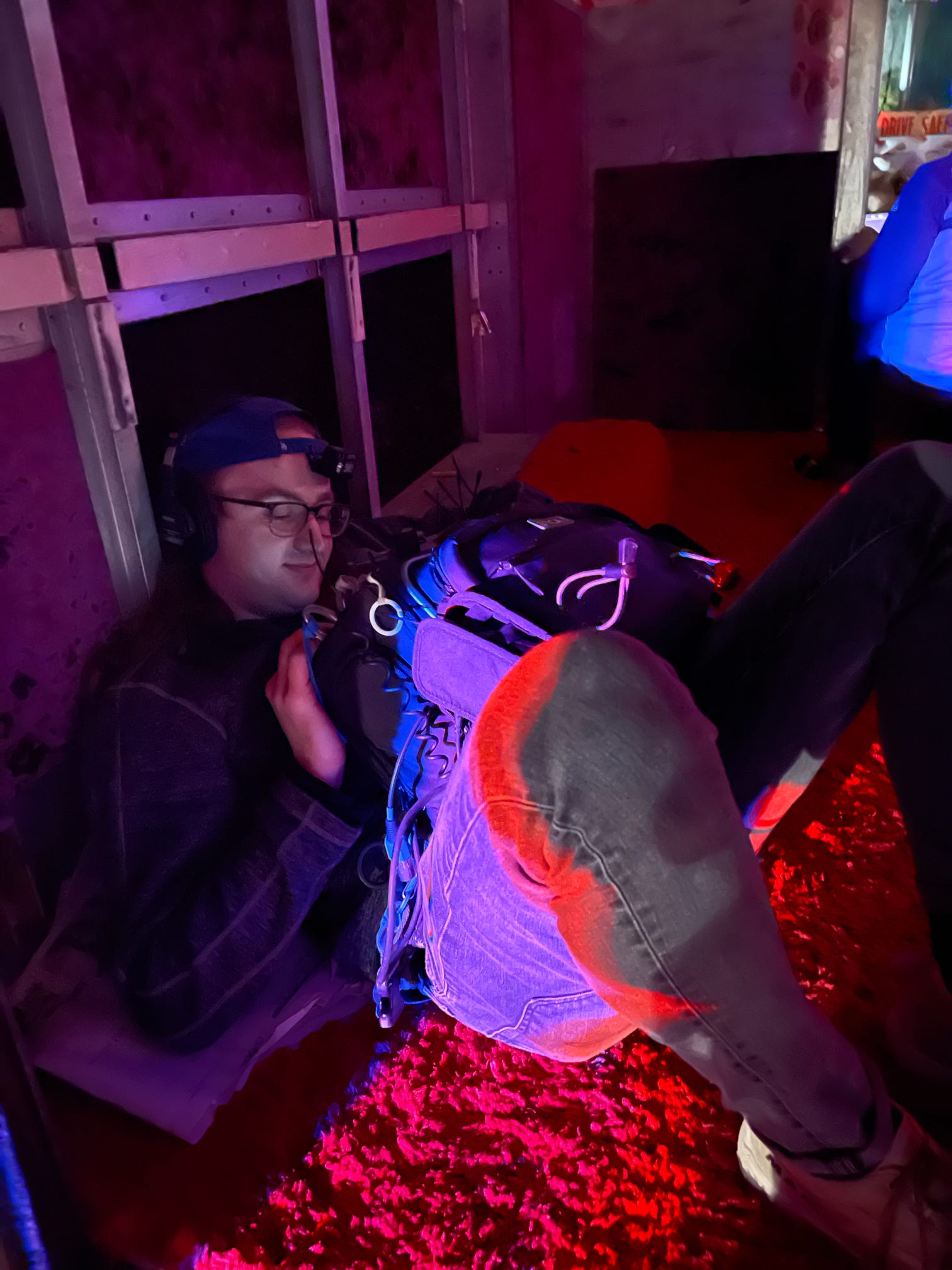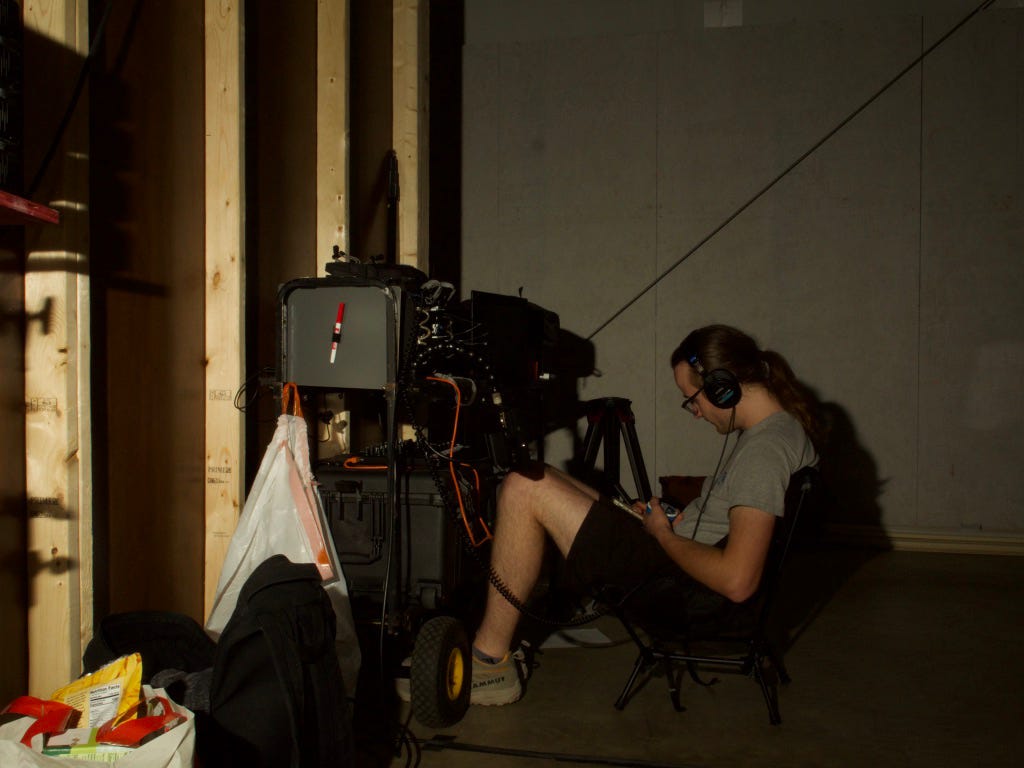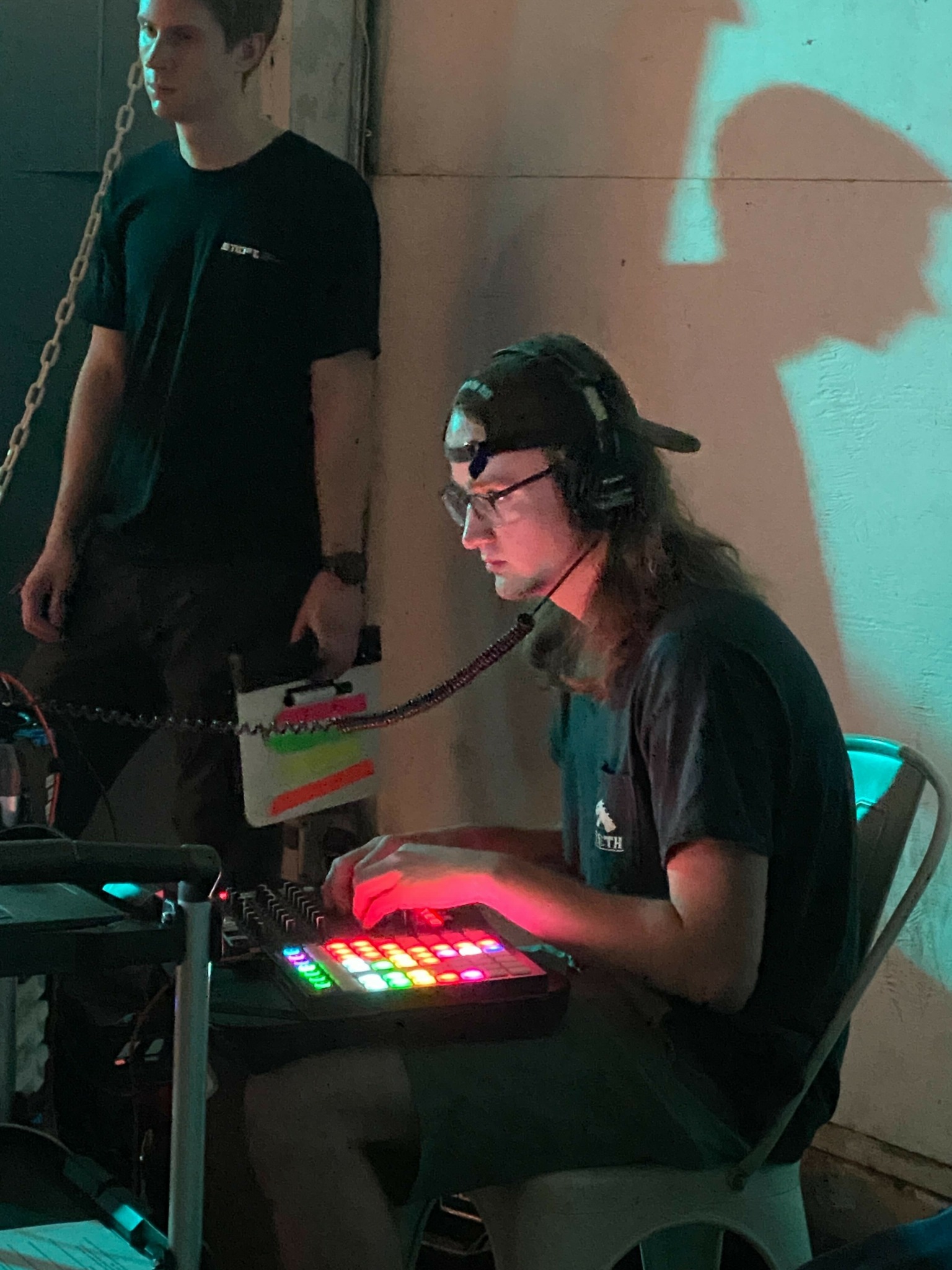We caught up with the brilliant and insightful Edward Thomson a few weeks ago and have shared our conversation below.
Edward, thanks for taking the time to share your stories with us today Earning a full time living from one’s creative career can be incredibly difficult. Have you been able to do so and if so, can you share some of the key parts of your journey and any important advice or lessons that might help creatives who haven’t been able to yet?
I’ve been lucky enough to be able to earn a full-time living from my creative work since I moved out to LA in 2022. It was a tough journey, and I’ve come so close to finding a part-time job at least once a year. The biggest keys to making this work have been diversifying my skillset, networking, and budgeting. As a Sound Mixer, there are myriad styles of projects to work on from broadcast to live events to feature films to commercials. While some people find their groove in one of those styles, given the changes in the entertainment industry in the past 5~10 years, being able to work on any kind of content has been key to staying financially stable. It allows me to never turn down a gig because it is outside of my wheelhouse, leading to both more work and a larger network. My network has been my biggest help. Whether it’s other Sound Mixers who provide advice and pass along gigs, producers who are always planning their next projects, or Cinematographers who are usually asked for recommendations for other crew positions, having a good network has been essential to finding enough work to be full-time freelance as well as just having a community of like-minded individuals who understand the struggles and unique thrills of this kind of work. Finally, having a good budget has allowed me to track which periods are more profitable and save for the slow times. Year after year, I find that I have a better handle on my finances and am able to not just survive during the slow periods, but thrive.

Edward, before we move on to more of these sorts of questions, can you take some time to bring our readers up to speed on you and what you do?
I’ve been a Sound Mixer and Boom Operator for the last five years. I fell into film by accident. I was studying International Human Rights law when COVID hit, cancelling my Fulbright program in Montreal. I found myself stuck on campus all summer. I had made many friends in film as I had taken some film classes for fun, and since there wasn’t much else to do that first summer of COVID, I found myself helping them out on sets. This made me take a few more film classes next semester, and with the encouragement of my peers, I added on a film major. Winding up in sound was more a matter of what made sense than a passion for film sound that I’ve had my whole life. I was a Senior when I finally switched to film, and I certainly wasn’t going to find work as a DP or Director competing with people who had been doing this their whole lives! I noticed a lack of good Sound Mixers and figured my music and sound engineering background could be a perfect fit to fill this gap. Since then, I fell in love with film sound. I think it’s the perfect blend of a technical and creative position as well as one that requires a lot of collaboration with nearly every department on set. I started my professional career as a Boom Operator for feature films in Detroit, MI and moved to LA in 2022 to pursue a full-time career as a Production Sound Mixer. I’m most proud of my work on feature films as they highlight my dedication to sound as a creative force in film as well as my commitment to collaboration. I love being involved from pre-production through post and really enjoy the feeling of being part of a team that comes with longer projects like features.

In your view, what can society to do to best support artists, creatives and a thriving creative ecosystem?
The best thing that society can do to support artists and creatives is to view art as art rather than a product. If you asked artists what their least favorite part of their work is, I’m willing to bet that most would say the business aspect. The fact that being a freelance creative means running your own business was never something I was told at any stage in my education or when starting my career. I had to figure it all out through trial and error. All I want to do is be on set making art, but I find the majority of my time is spent networking, bookkeeping, updating my website and social media, and doing all of the other million little things that come with running your own business. I don’t want to get on my anti-capitalist soapbox, but I think this all stems from the fact that, in today’s society, art is simply a product for consumption. At everything but the highest level, artists are forced to make a financially viable product, not art. This can be really draining and depressing, and I think it’s why so much art is outspoken in its opposition to the commercialization of art. I don’t have the answer, and it wouldn’t be an easy adjustment, but if we transitioned back to viewing art as art and people invested in artists simply because they valued art, I think the world would be a much more creative place and people would be more willing to explore their creativity rather than simply thinking about what makes the most financial sense.

For you, what’s the most rewarding aspect of being a creative?
The most rewarding aspect of being a creative is when people finally get to experience your work. The reason we make art – or at least the reason I make art – is to connect with people. To express emotions in ways that words cannot. The whole process of filmmaking can feel like a slog at times. The endless fundraising, the 16-hour days on set, the months or years of post-production. But when you sit down in a theater surrounded by people watching something that you worked on, you forget all of the negatives and it’s all worth it. Any time I’m having doubts about my career, I just watch something that I’ve worked on or browse reviews/comments sections. Then I see how something I helped make is impacting people. How it is helping them feel seen or represented. How they connect with it on an emotional level. That’s why I got into this career, and that’s all I want to do for the rest of my life.
Contact Info:
- Website: https://www.decabitsoundllc.com
- Instagram: https://www.instagram.com/decabitsound
- Facebook: https://www.facebook.com/edward.thomson.3572/
- Linkedin: https://www.linkedin.com/in/edward-thomson-943a67156/
- Other: https://www.imdb.com/name/nm10274740/



Image Credits
Zach Miller
Max Pippel
Alex Rynkiewicz
Bradley Winka


